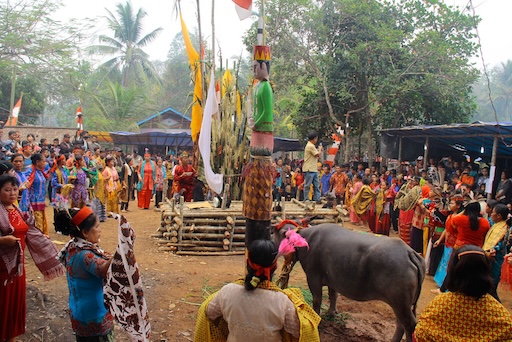
Deep within the lush rainforests of Central Kalimantan, the Dayak Ngaju people practice one of Indonesia's most sacred and mesmerizing ceremonies — the Tiwah. More than a funeral rite, the Tiwah is a powerful spiritual passage, a final act of love and duty performed by the living for the departed. In the eyes of the Dayak Ngaju, death is not the end; it is a long journey toward a better, eternal village in the spirit world, known as Lewu Tatau.
A Ceremony Years in the Making
The Tiwah is not performed immediately after someone dies. Instead, the body may first be buried or stored in a temporary shelter. The family then waits—sometimes for years—until they can afford to carry out the elaborate rituals required for the Tiwah. This waiting period is not a delay, but a sacred preparation. The ceremony involves days or even weeks of rituals, animal sacrifices, traditional dances, music, and feasting, all aimed at purifying the soul of the deceased and guiding them safely to the afterlife.
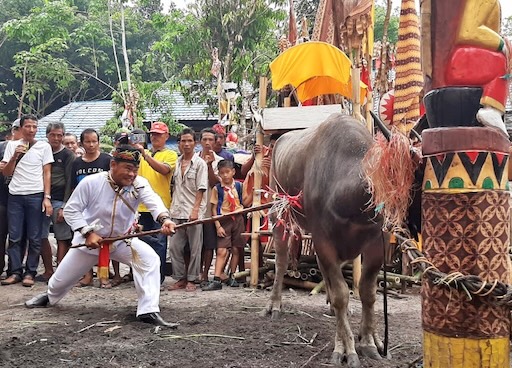
Sandung – The House of Bones and Memory
At the heart of the Tiwah ceremony is the Sandung, a beautifully carved wooden ossuary that serves as the final resting place for the deceased’s bones. After the bones are exhumed, they are carefully cleaned, wrapped in traditional cloth, and placed inside the sandung. The structure itself is more than a grave — it is a sacred home that binds the living and the dead. Often ornately decorated with Dayak motifs such as dragons, hornbills, or ancestral faces, the sandung stands as a spiritual monument in the village.
The Basir – Shamans of the Spirit Path
Guiding the Tiwah is a figure of immense importance: the Basir. These ritual specialists or shamans are believed to possess the power to communicate with the spirit world. Through chants, dances, and offerings, the Basir leads the procession, opening the gates between realms and calling upon benevolent ancestors to assist the spirit’s journey. Their presence brings a balance of protection and reverence — a reminder that this ceremony bridges two worlds.
A Community of Remembrance
The Tiwah is more than a private family event; it is a communal affair. Villagers from surrounding areas join the ceremony, offering support, food, livestock, and even financial aid. Buffalo, pigs, and chickens are commonly sacrificed in honor of the deceased, with the meat distributed to participants. Traditional Dayak music — rhythmic gongs, chants, and sape' (a string instrument) — fills the air as dancers perform ritual movements that mirror the soul’s path to freedom.
The Sacred Dance of Farewell
One of the most captivating moments is the Tari Giring-Giring, a dance performed by men and women holding bamboo rattles, symbolizing the call to ancestral spirits. Each step and sound is believed to communicate messages to the beyond, sending waves of energy and prayer to those no longer physically present. It’s a spiritual ballet, blending devotion, grief, and celebration.
Symbolism in Every Gesture
From the colorful garments worn by the dancers to the ceremonial placement of offerings, every detail in the Tiwah carries meaning. The use of red often symbolizes life and protection, while white denotes purity. Even the orientation of the sandung within the village adheres to traditional cosmology, often aligned with the flow of the river — the symbolic path the soul must travel.
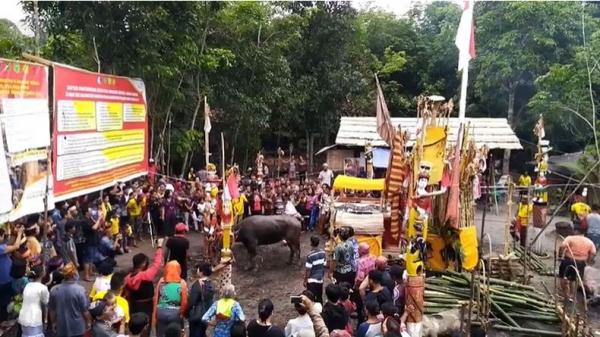
Preserving a Vanishing Legacy
As modern influences increasingly permeate the jungles of Borneo, the Tiwah faces challenges. The cost, the time, and the diminishing number of Basir have all contributed to its gradual decline. Yet for the Dayak Ngaju, it remains a living expression of identity — a ritual that holds together the threads of ancestry, spirituality, and cultural continuity. Efforts by local communities and cultural preservationists are helping to document and revitalize this profound ceremony.
A Window into the Spirit of Kalimantan
To witness a Tiwah is to step into a spiritual odyssey where the veil between worlds is at its thinnest. It is a reminder that in the heart of Borneo, death is not an ending, but a transformation — a journey sung through chants, danced in circles, and etched forever in the wooden faces of sandung shrines. The Tiwah is not only a rite for the dead; it is a mirror of the living soul of Kalimantan.
Share this story and inspire others.
Tags: Tiwah Ceremony, Dayak Ngaju, Central Kalimantan, Borneo Culture, Indonesian Rituals, Sandung, Basir Shaman, Lewu Tatau, Dayak Traditions, Indigenous Funeral Ceremony, Spirit World Journey, Unique Death Rituals, Traditional Kalimantan Ceremony, Dayak Culture, Sacred Ceremonies Indonesia
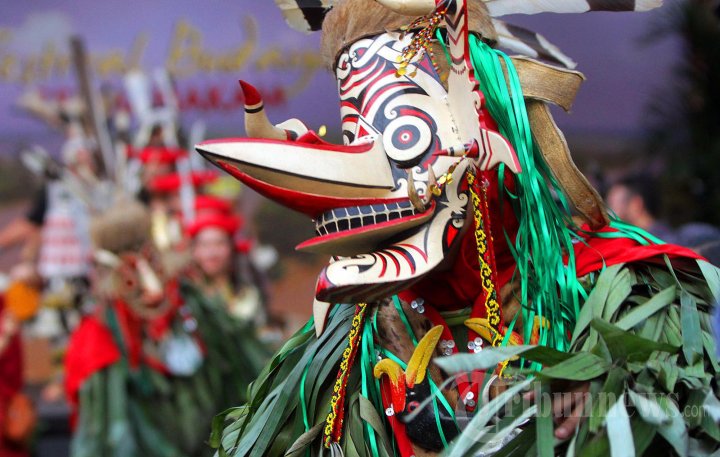 Hudoq Dance – Spirit Masks and Agricultural Rituals of the Dayak Bahau
Hudoq Dance – Spirit Masks and Agricultural Rituals of the Dayak Bahau
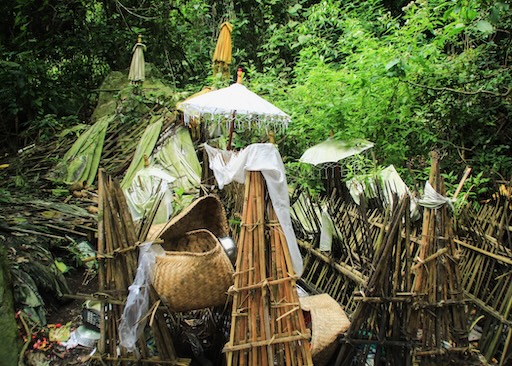 Desa Trunyan – Where the Dead Rest in the Open (and Don’t Smell)
Desa Trunyan – Where the Dead Rest in the Open (and Don’t Smell)
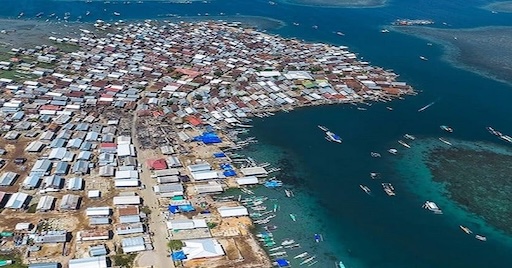 Pulau Bungin – The Densest Island on Earth?
Pulau Bungin – The Densest Island on Earth?
 Lake Kakaban – The Jellyfish Lake That Doesn’t Sting
Lake Kakaban – The Jellyfish Lake That Doesn’t Sting
 Manajah Antang Ritual – Bird Spirits and Ancestral Messages in South Kalimantan
Manajah Antang Ritual – Bird Spirits and Ancestral Messages in South Kalimantan
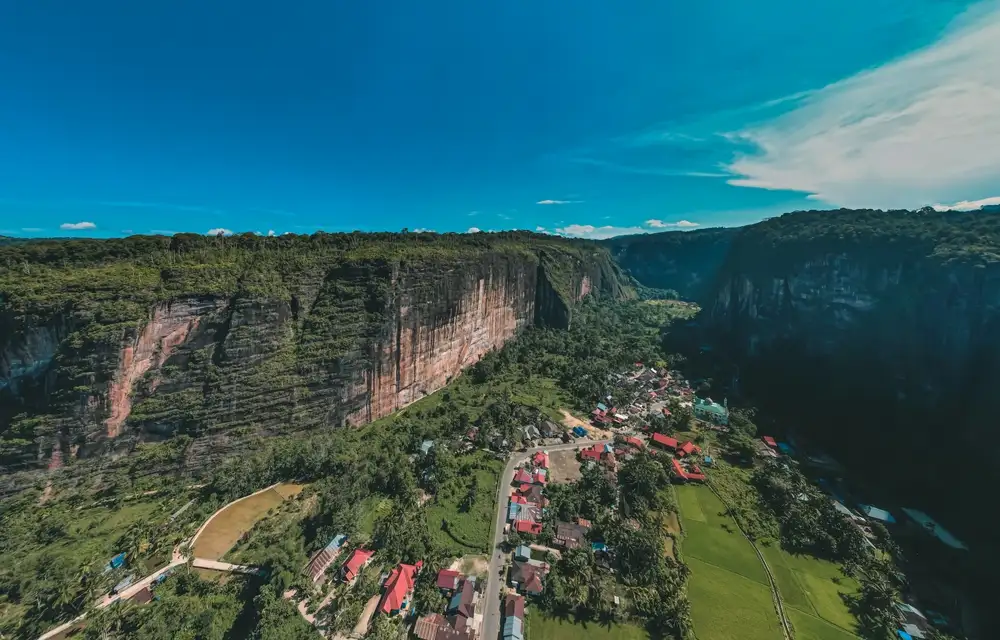 Harau Valley – Indonesia’s Slice of Norway
Harau Valley – Indonesia’s Slice of Norway